RESEARCH & SCIENCE
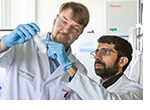 SUSTAINABLE CHEMISTRY
SUSTAINABLE CHEMISTRYHow polymers and natural temperature variations serve to produce clean drinking water
Is there a way to obtain fresh water from seawater without employing conventional desalination techniques? A team led by Professor Sebastian Seiffert of the Department of Chemistry at JGU has developed a very promising approach to dealing with this important question. The HydroDeSal concept uses a hydrogel that reacts to changes in temperature. Once it gets cooler in the evening, the hydrogel draws water from the sea, already rejecting the salt, and then releases clean, salt-free drinking water during the day when temperatures rise. The application of this strategy is now to be made ready for the market.
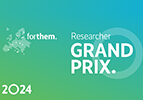 JGU INTERNATIONAL
JGU INTERNATIONALA very special Researcher Grand Prix
Annika Djolai and Elena Suárez Cronauer will be representing the Mainz research hub at the FORTHEM Researcher Grand Prix event in Agder in Norway. This international science slam will be premiering on 6 November 2024. The two young academics will be competing against early-stage researchers from five other universities of the FORTHEM Alliance, which comprises a total of nine higher education institutions all over Europe. Annika and Elena qualified for participation in Agder at the science slam organized by the Task Force Young Science in Mainz in September 2024.
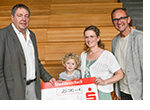 MOLECULAR CELL BIOLOGY
MOLECULAR CELL BIOLOGYRescue plans for the retina
The errors are small but carry severe consequences: In Usher syndrome, genetic mutations cause both hearing and vision loss. Cell biologist Professor Uwe Wolfrum from Mainz University is researching the molecular background of this rare genetic disorder – supported by foundations and, not least, by affected individuals themselves.
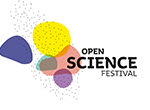 RHINE-MAIN UNIVERSITIES
RHINE-MAIN UNIVERSITIESOpen science in academic and scientific practice
The third edition of the German Open Science Festival will take place on 17 and 18 September at Johannes Gutenberg University Mainz (JGU). The festival offers participants the chance to discover and experience the diversity and significance of open science in all its facets.
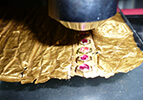 Gemstone Research
Gemstone ResearchUncovering the secrets of gems
Gemstones are fascinating wonders of nature, surrounded by a mystical aura of luxury. Dr. Tobias Häger is working on diamonds, rubies, sapphires, and emeralds every day. He is head of the Gem Materials Research group at the Institute of Geosciences at Mainz University, the only university-based team working in gemstone analysis in Germany and one of very few university institutions worldwide that is active in this specialized field.
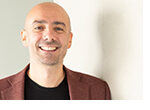 VOLCANOLOGY
VOLCANOLOGYWhat’s bubbling below the Eifel plateau?
A seismological campaign, the first of its kind in Germany, is being carried out to determine the status of the roughly 800 essentially dormant volcanoes in the Eifel region. The objective of the new project is to find out whether any of these volcanoes could again become active and what exactly is happening below the surface. What do we have to expect in the future? Professor Luca De Siena of the Institute of Geosciences at Johannes Gutenberg University Mainz (JGU) is a member of the survey team. He is to generate computer models from the newly obtained data to understand future volcanic activity in the Eifel region..
 ANTHROPOLOGY
ANTHROPOLOGYA new world order of cultural production
CEDITRAA was launched in 2021 as a joint project of the Rhine-Main Universities (RMU) alliance in cooperation with the Pan-Atlantic University in Lagos. The project aims to investigate cultural entrepreneurship in Africa and Asia and the role of digital media in the international dissemination of the related output.
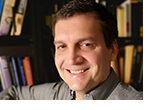 EU RESEARCH FUNDING
EU RESEARCH FUNDINGThe role of the Monastic Republic of Mount Athos in the Middle Ages
Dr. Zachary Chitwood, lecturer in Byzantine Studies at Johannes Gutenberg University Mainz (JGU), has been awarded an ERC Starting Grant to fund his research project MAMEMS. This is despite the fact that research in the humanities and social sciences rarely seems to take advantage of this form of financial support although grants from the European Research Council are specifically designed to sponsor innovative research of all kinds.
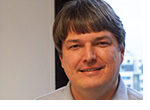 COMPUTER SCIENCE
COMPUTER SCIENCEPowerful technologies may help overcome future challenges
How will the field of artificial intelligence (AI) develop in the coming years? What sort of risks, what chances will open up? Professor Stefan Kramer of the Institute of Computer Science at Johannes Gutenberg University Mainz (JGU) is to find answers to these questions – in an interdisciplinary research project in which he and his colleagues will investigate core aspects of AI over the next six years.
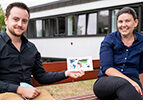 BIOCHEMISTRY
BIOCHEMISTRYGiving more attention to neglected tropical diseases
More than one billion people worldwide suffer from devastating tropical illnesses that to date have been insufficiently researched. Biochemist Professor Ute Hellmich is exploring new ways in which these neglected diseases can be treated. Her research group employs a structural biological approach, concentrating on three closely-related parasites that causes Chagas disease, African sleeping sickness, and leishmaniasis.
